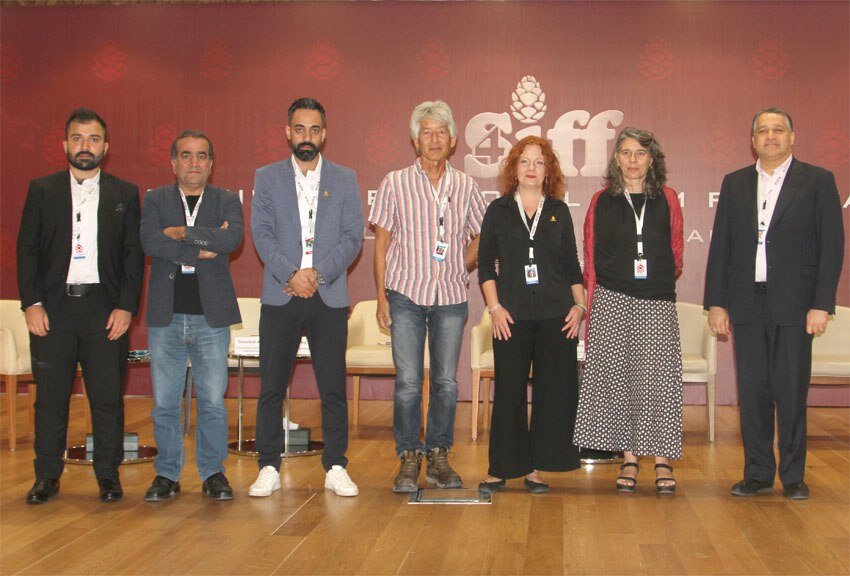Head of Farabi Cinema Foundation Alireza Tabesh said formation of the regional film market is the vital strategy of Iranian cinema in the modern era.
Iran (IMNA) - Along with Tabesh, Head of Czech Republic Film Organization and EUFCN deputy Pavlina Zipkova, Head of Spain's Catalonia Film Organization Carlota Guerrero, Head of The Hague Film Organization Ing Lim from the Netherlands, Danar Omar Fares, Artistic Director of 4th edition of Slemani International Film Festival, Director and Art Manager of Duhok International Film Festival Shokat Amin Korki also were attending in the joint panel on the sidelines of the 4th edition of Slemani International Film Festival currently under way in Iraqi Kurdistan region.

In a meantime several high-ranking Iranian consular officials and cinema people including Iran Consular General in Sulaymaniyah Mahdi Shoshtari, Fuad Jalal, Festival Manger and head of Masti Film Company, Acclaimed Iranian Director and the jury member of World Cinema Competition (International) Pouran Derakhshandeh, Iranian Culutal Attaché in Sulaymaniyah Malek Hashemi, Mehrdad Oskouei the jury member of World Cinema and Kurdish sections of the festival, etc were also attending the event.

Addressing the gathering, Tabesh underlined that cinema is considered as an important tool for conveying cultural messages. Commenting on the recent visit of Foad Jalad the director of the festival from Iran Children and the Youth Film Festival in Isfahan, Tabesh underlined that Iran is keen on producing joint film with Iraqi Kurdistan Thanks to the two countries historical commonalities, he added that the indigenous, national, social, political, economic, and religious concerns of the two parties should be considered for producing the joint films.

Tabesh reiterated that the Kurds of Iran are one of the most ancient tribes in this land, adding that philanthropy, hospitality, and loyalty are permanent features of these people.
Tabesh added that the Farabi Cinema Foundation has so far cooperated with several countries in producing joint films with India, Pakistan, Iraqi Kurdistan region, Iraq, Azerbaijan Republic, Armenia and Turkey.
Tabesh added that so far the Farabi Cinema Foundation has signed several cooperation agreements and memorandum of understanding with different countries including Oman, Qatar, Kyrgyzstan, Afghanistan, Russia, South Korea, China, Serbia, Finland, France, Czech Republic, Germany, etc. for producing joint films.
He added the Iranian cinema, with a 120-year history, is one of the oldest cinemas in the region and today is known as the "human cinema" in the world, and can represent and showcase the dignity of Iranian-Islamic art and culture.

Tabesh concluded as saying that the Iranian cinema is highly capable in the felids of software (ideas, ideas and human capital) and has the potential in international cooperation in the field of vocational education and training in addition to co-production.
"Tanks to its valuable experiences, Iranian cinema can accelerate the reconstruction and advancement of Iraqi and Kurdish cinema so that it can present a unique image of itself to the global audience, rather than following the dominant cinema," Tabesh added.
Your Comment